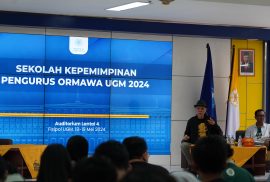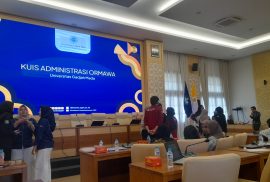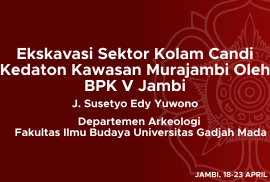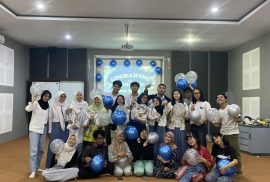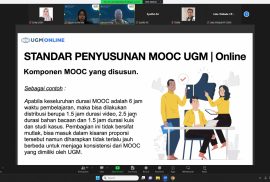n Sunday, May 19, 2024, the Directorate of Students Affairs UGM held an activity to develop and empower the management of student organizations of Universitas Gadjah Mada through a series of two-day activities, namely the “Leadership School of UGM Student Organization Management”. The leadership school, which was held on Saturday, May 18, 2024 and Sunday, May 19, 2024, provided an opportunity for representatives of organization administrators to gain knowledge on how to become a leader as a student and proper communication and governance of student organizations. The two-day event was held at Auditorium Mandiri 4th floor, Faculty of Social and Political Sciences UGM.
On the second day, Sunday, a student of the Faculty of Cultural Sciences UGM representing the Gadjah Mada Debating Society UGM, I Putu Adhimas Radiansyah Aryawan, participated in the Leadership School activities which began with the initial material, namely Event Management and Sponsorship by the two speakers, Bambang Paningron and Berchman Heroe. In this material session, both speakers explained the importance of structured and planned event management, because some of the successful events began with careful and thorough planning. In the next presentation session, the Code of Student Activities was presented by Mrs. Desi Yulianti, S.E., M.Acc., Head of Subdirectorate of Student Organizations, Facilities, and Welfare, together with Mr. Mugiyarto, S.IP., Coordinator of Student Organizations and Activities, Directorate of Student Affairs UGM. This was followed by a session on Innovation, Creativity, and Curriculum Development and a closing session on SME Internal Quality Audit.
At the end of the event, the participants were given a group quiz to answer ten questions about leadership, organizations, and UGM official institutions. As a representative of the organization, Radiansyah hoped that the Leadership School would be a place of knowledge and a new beginning for student organizations and leaders who are the originators of innovation and creativity.

